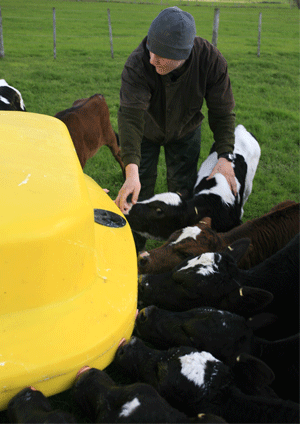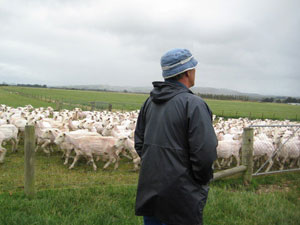Farm Hand
Tasks & duties
Farm work varies depending on the time of year and the type of farm. Sheep/cattle farm assistants help farmers and may do some or all of the following:

-
shift sheep or cattle between paddocks to ensure sufficient feed is available
-
muster sheep and cattle
-
drench and dip sheep and cattle to keep them healthy
-
maintain buildings, yards and fences
-
monitor sheep and cattle health regularly
-
distribute supplementary feed to animals
-
operate farm machinery
-
shear sheep
Crop farm assistants help crop farmers and may do some or all of the following:
-
prepare land for cropping
-
spray crops for diseases while they are growing
-
harvest crops
-
maintain farm buildings and equipment
-
operate farm machinery
Dairy farm assistants help dairy farmers and may do some or all of the following:
-
milk cows and sterilise milking equipment
-
rear calves
-
feed calves
-
feed cows supplementary feed, such as hay and silage
-
shift electric fences to allocate correct grass to cows
-
clean and repair farm equipment such as buildings and machinery
-
operate farm machinery
Skills & knowledge

Farm assistants need to have:
-
good knowledge of different types of farming methods, including cultivation and harvesting methods, sprays and spraying techniques and how to manage grass and feed
-
knowledge of how to use and care for farm equipment and machinery
-
practical skills for tasks such as fencing
-
mechanical skills for repairing equipment
-
animal-handling skills
-
problem-solving and organisational skills
-
driving skills to get around the farm on motorbikes, tractors or farm utility vehicles
Entry requirements
There are no specific requirements for becoming a farm assistant. Skills are gained on the job.
Secondary education
Although there are no specific secondary educational requirements, useful subjects include agriculture, horticulture, workshop technology, maths, English and science.
Tertiary Education
A National Certificate in Agriculture, specialising in dairy, cattle or sheep farming, may be useful. Higher qualifications such as a Diploma in Agriculture or Farm Management are also worth considering.
Training on the job
Farm assistants may attend a range of short courses and events to improve their skills, such as shearing, fencing or tractor driving.
Useful experience
Useful experience for farm assistants includes:
-
work with livestock
-
farm training courses
-
work on crop farms
-
forestry work
-
general maintenance work
Related courses
Agricultural Science
General Land Skills
Wool and Fibre Harvesting
For more information, please refer to myfuture.
Document Actions
